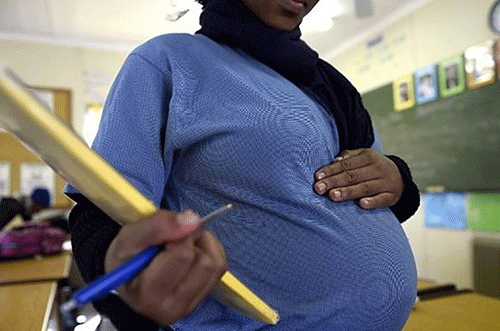ONGWEDIVA – Repeat pregnancies are one of the reasons why girls drop out of schools in the Ohangwena region, it has been revealed.
Statistics provided by the executive director of education, arts and culture for 2022 indicated that the Ohangwena region tops the bill with the largest number of dropouts for both male and female learners.
The region saw 501 girls leave school prematurely last year, while the number of boys stands at 1 118.
These boys and girls are part of the total number of 11 703 (9 001 males and 2 702 females) who dropped out of school.
Ohangwena regional education director Isack Hamatwi attributed one of the reasons for dropouts to repeat pregnancies.
“With pregnancies, the girls leave school to go deliver their babies and return to school. But sometimes, they might fall pregnant for the second time. They enter the transition period from girls to women, and their behaviours change to be no longer compatible with schooling. They end up dropping out completely,” said Hamatwi.
He said, although his directorate desires to keep children in school through various innovative ways, it is often a difficult undertaking because the learners’ backgrounds differ, and they opt out of school for various personal reasons.
Hamatwi also ascribed some of the dropouts to the ‘unconducive’ environment at schools, saying, “At times, the school environment discourages learners from going to school, as they are taught in makeshift classrooms”.
According to Hamatwi, a special effort needs to be made for the male learners as he called on school authorities and stakeholders to involve them in learner support programmes.
“These programmes currently only target the girl child and assist them to stay in school, and the boys feel left out and alienated.”
National statistics further indicate that other contributing factors leading to school dropouts are the distances between school and home, illness or taking care of sick relatives, learners feeling too old for a grade and disciplinary problems.
Spokesperson of the Ministry of Gender Equality, Poverty Eradication and Social Welfare Lukas Haufiku noted that when a male learner drops out of school due to behavioural problems, the ministry steps in and provides counselling and psychosocial support.
“We ask the parents or school to inform us about this troublesome child.
With the help of parents and life skills teachers, we then mould that child into a man,” he said.
Haufiku added that most of the behavioural problems are caused by drugs in school, influences from other learners, issues at home and bullying at school.
“With counselling and psychosocial support, the male learner realises and understands that he is playing with his future because we do not want them to drop out of school and end up on the streets,” he stressed.
“Parents need to explore all the means to make sure their children stay in school. First parents, then the government,” said Haufiku.
DROP OUT
STATISTICS
Male
Ohangwena (1 118)
Kavango East (984)
Kavango West (885)
Otjozondiupa (817)
Kunene (811)
Omusati (752)
Oshikoto (741)
Khomas (598)
Omaheke (569)
Hardap (446)
Zambezi (430)
Erongo (322)
//Kharas (289)
Oshana (239)
Female
Ohangwena (501)
Kavango East (399)
Omusati (343)
Kavango West (316)
Oshikoto (251)
Kunene (158)
Otjozondjupa (146)
Zambezi (162)
Oshana (113)
Khomas (100)
Omaheke (72)
Erongo (70)
Hardap (48)
//Kharas (23)



